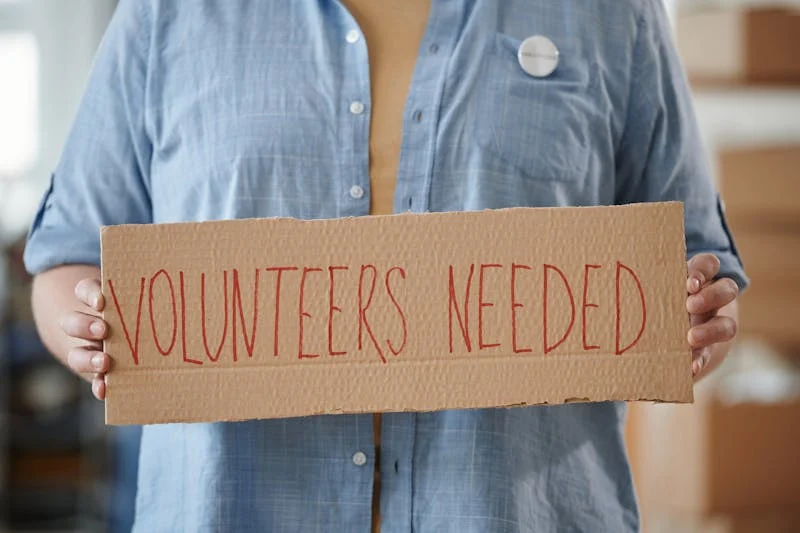
In our communities we see that ever-increasing needs is becoming the norm – many of them urgent – and community service and outreach programs strive to selflessly meet those needs, offering resources to those struggling to make ends meet. The intention behind such programs is simple: to provide assistance, support, and guidance to help people improve their circumstances and/or to meet immediate needs so that those same people can go on to solve more long-term needs on their own.
However, one of the harsh realities of community work is this: not everyone who needs help will take the necessary steps to receive it – beyond the most basic of things. This truth leads us to ask a difficult question – Can we really help those who won’t help themselves?
I run a community resource outreach program, where each week we host a resource fair featuring vendors who provide essential services to hundreds of community members in need. Our efforts are driven by a deep desire to address the many unmet needs we see around us. However, helping those unwilling to help themselves often feels like ‘pissing into the wind.’
One example stands out: a vendor offering free diapers, wipes, baby formula, and car seats for families with young children, over the course of two weeks, signed up forty mothers for assistance. The only condition was to attend a scheduled appointment to collect the items and receive case management. Astonishingly, none of the forty women showed up.
As a result, the organization, despite investing significant time and resources to assist these mothers in need, ended up wasting two weeks’ worth of appointment slots -time that could have been given to people genuinely willing to receive help.
This incident demonstrates a frustrating dilemma faced by those in the business of helping others: there are people in need, there are resources available, and yet, some people seem unwilling or unable to engage with the help offered. This leads to wasted resources, time, and energy – precious things that could have been directed toward people who are ready and willing to receive help.
By definition, help means providing what is necessary to accomplish a task or meet a need. It includes assisting, aiding, and cooperating effectively. But the crucial part of this definition is the idea of cooperating effectively.
Help isn’t a one-way street. It necessitates the participation of those seeking help and a willingness to engage – even small actions from the person asking for help can go a long way, like showing up for appointments. When that cooperation is missing, it raises the question: Is it still worth offering help if the intended recipient won’t make even the slightest effort to receive it?
This brings us to the concept of triage, a principle born in the field of medicine but applicable to many aspects of community work. In triage, limited resources are allocated to those with the best chance of benefiting, while those who cannot be helped are left to their fates. It may sound cold, but it’s a practical way of ensuring that limited resources do the greatest good for the greatest number of people.
In the context of outreach, this principle asks us to reconsider how we allocate our time, energy, and supplies. If someone is unwilling to meet us halfway, should we continue to invest in them, knowing that others may be more receptive to our efforts?
There is an emotional component to this dilemma as well. Those who work in community service often carry a deep sense of responsibility toward others. They see suffering, and their instinct is to alleviate it. But when efforts to help are met with indifference, frustration can quickly set in. It can feel, as the saying goes, like “pissing into the wind.” Not only is nothing achieved, but it also leaves those offering the help feeling discouraged and depleted.
Ultimately, we must grapple with the uncomfortable reality that not everyone can be helped. Whether due to apathy, disorganization, or deeper personal struggles, some individuals will not engage with the resources available to them.
In these cases, we must ask: Is it truly help if it becomes a one-sided effort? Or does real help require a partnership, a cooperative relationship in which both parties contribute toward the desired outcome?
In community outreach, as in life, helping others involves making hard choices. The desire to assist is commendable, but it must be tempered with wisdom and discernment. Perhaps we need to direct, or redirect, our efforts and resources toward those who are ready to help themselves – or at the very least, show up.
This isn’t about withholding compassion; it’s about ensuring that our resources go where they can have the most impact.
In the end, help is more than just handing out resources. It’s about empowering people to change their circumstances, which can only happen when they take some responsibility for their own lives. While it may feel harsh to say that we can’t help those who won’t help themselves, it’s a necessary truth in a world where resources are finite and the needs are many.
True help, after all, is not just about what we give; it’s about the shared effort between those offering assistance and those receiving it. Without that cooperation, help loses its meaning -and its power.
Join us in making the world a better place. You’ll be glad that you did. Cheers friends.